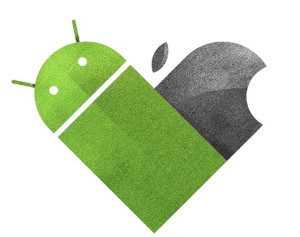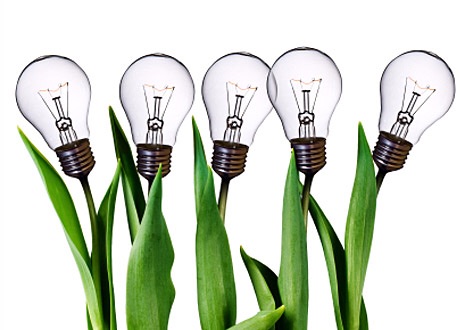In the race of two major players in the OS market – Apple and Google – the average user is often lost in the stream of updates and sometimes even gets tired of them. In such cases, we can talk about a kind of fatigue from constant innovation. Here is a look at the problem from one of these users.

Most recently Apple and Google presented updates to their operating systems at their annual press conferences. The innovations did not give rise to enthusiastic responses, on the contrary, there followed the opinion that Apple was assigned the role of a catch-up, imitator. My opinion does not correspond to the majority: I do not care.
Apple and Google have gotten into the habit of expecting great news. We are used to thinking that with every annual update of the OS and flagship devices, a revolution awaits us, because it has been so for many years in a row. But this is no longer happening, which is in the order of things: an endless release of the innovation market at the same pace is a priori impossible. Moreover, it is not always effective. Remember the device Amazon Fire? An innovative and dissimilar to competitors, but nevertheless a failure. Even recent innovations from Apple and Google – Apple Pay, Passbook, Google Wallet, SMS in Hangouts – did not cause the desired emotions among users. After ten years of development of these devices, we can observe the decline of the 'wah' effect. We no longer need a crazy breakthrough in technology: we want our devices to be more stable in performing current tasks.
For example, during WWDC, a representative Apple spoke for three minutes about the appearance in iOS 9 of support for public transport routes. Think about it. In 2012, this was only briefly mentioned. And now this is a separate item. This is far from a revolution, but this improvement was urgently needed (and is now necessary, because it still works for selected cities). But I don't need any more. A small useful innovation.
If you look at the list of features Android M and iOS 9, you will notice significant similarities. Companies have created an OS that anyone can use right away. There are similarities in the system of gestures, notifications and the presence of cross-platform tools. A regular user iOS is able to intuitively start using the basic functions of the device based on Android and vice versa. Apple and Google have been trying to 'catch up' with each other for a long time within the framework of their operating systems and now this is manifested in practice.

In this sense, the platform war is no longer as relevant as it used to be. Both Android and iOS are good. Both are convenient to use. And as operating systems become more and more similar, it is possible to use the same services on different platforms. Apple Music will soon be available for Android, Google Play Music for iOS. More importantly, third party services (Spotify, Netflix, Facebook, etc.) are available both there and there. Does an adequate person care what OS you use? No. At this stage, the new devices no longer cause great delight. And good. I don't want to tell everyone about my phone anymore.
There is nothing wrong with Apple and Google 'repeating' each other. The development proceeded at a rapid pace, the time had come for a slow progress. iOS 9 plays the role of Snow Leopard in the ecosystem: it is designed to simplify the underlying principles of the ecosystem and provide better performance. The same can be said for Android M. Is Apple chasing Google by implementing a response system in Siri based on environmental analysis? Yes, but that's good. This means that the company is actually following other developments in the industry and finally took its head out of the sand and looked around. Is Google chasing after Apple with a new app permissions management and fingerprint authentication? Yes, and this is also a positive point. The more companies borrow from each other, the more we benefit.
Apparently, this is how the last stage of the innovative development of smartphones looks like. Then everything will become faster, more efficient, and better. The smartphone will no longer be a revolutionary product, but just another gadget.
Needless to say, Apple and Google still have their secret trump cards over their operating systems. Each company continues to work to improve its personal assistants, helping us to cope with the huge stream of notifications, events and notes that we have to deal with. Google Now On Tap looks promising, and multitasking on iPad will only be a plus. Siri's new features will dramatically improve your voice assistant experience. In the upcoming OS updates, we will see more of these small incremental improvements to existing services. But the choice between the two platforms is no longer important. It's all about your preferences, because both operating systems perform the same tasks.

Continuous innovation is not a rational way of developing a company. iOS 9 is not a sign that Apple have lost their ability to anticipate innovation, but rather a proof that smartphones are reaching their limits. The innovations will appear in the form of new categories of devices, rather than reimagining the smartphone. What global innovations do we really need (besides longer battery life and improved performance)? I don't want to learn a new OS every year anymore. I want to treat her as an adaptation: she should dissolve in the stream of my work tasks so that I do not remember her existence.
Original article by Thorin Klosovski
Elir: It seems that the electronic fatigue that Artem Lutfullin and Evgeny Vildyaevlish wrote about is gaining relevance. One way or another, the difference between platforms from Apple and Google is more and more leveled, whether we like it or not. What is strange, despite the desire to see new features with each OS update, the thought of a different, qualitative nature of the innovations impresses me very much. And it is quite possible that we should no longer complain about the lack of updates of this or that device and reconsider our attitude towards updates.
